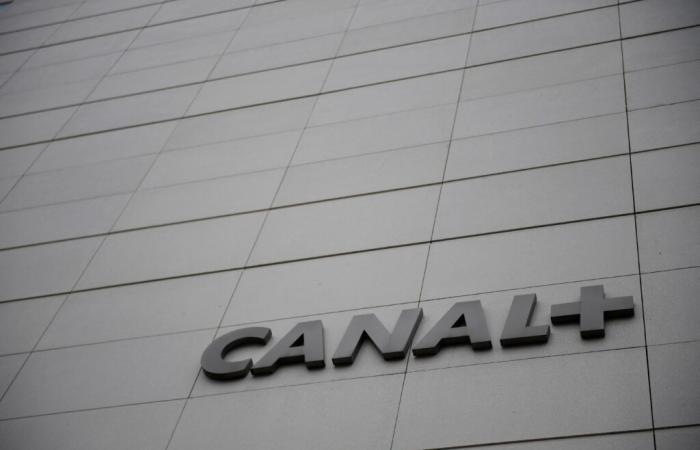(BFM Bourse) – The split of Vivendi into four companies is effective this Monday. Canal+, Havas and Louis Hachette Group made their debut on the London and Amsterdam Stock Exchanges and on Euronext Growth. If Havas and especially Louis Hachette jump at the start of the session, Canal+ plunges.
Are four Vivendis better than one? This is roughly the question that the Stock Exchange must answer this Monday. The conglomerate active in media, communications, video games and publishing has officially divided into four companies, three of them making their stock market debut that same day.
Canal+ is taking its first steps in London, communications specialist Havas is doing the same in Amsterdam, while Louis Hachette Group has listed itself on Euronext Growth, the compartment dedicated to small and medium-sized businesses on the Paris stock exchange.
For the moment, Canal+ is receiving a frosty reception on the London Stock Exchange, unlike the three other listed entities.
Canal+ shares are trading at 250 pence, reflecting a drop of 13.8% compared to its technical introductory price in London of 290 pence at the end of the morning. Based on approximately 992 million shares outstanding, the company’s market capitalization is £2.5 billion or approximately €3 billion.
>> Access our exclusive graphic analyses, and gain insight into the Trading Portfolio
“Not a Pavement of Roses” for Canal+
Ahead of this IPO, Canal+ organized a day dedicated to investors in mid-November. The audiovisual group then indicated that it was counting on growth in 2024 “in line with that of 2023” (i.e. around 3% in comparable data), then on a decline in its revenues in 2025, linked in particular to the cessation of broadcasting. of C8, before a “moderate” increase from 2026. The company also anticipated a “moderate” improvement in its adjusted operating margin in the medium term, still at constant scope.
At the end of this presentation, UBS lowered its valuation estimate to 3 billion euros compared to 3.9 billion previously.
For its part, the independent research firm Alphavalue wrote, at the end of October, that given Vivendi’s “weak” figures in the third quarter (Canal+ had recorded a drop in revenue of 1.7% on a comparable basis) it was not “encouraged to invest in Canal+ or to participate in the future IPO of Canal+, next December”.
“I don’t expect the share price to follow a path of roses in the first weeks, the first months. We will measure the success of this IPO within two to three years,” he said. warned Maxime Sadada, the chairman of the board of Canal+, in an interview with Le Figaro on Friday. “For the moment the market is discovering Canal+, an asset which does not really have any peers (comparable companies, Editor’s note),” he added.
Has in form
If Canal+ is therefore having a difficult start on the London Stock Exchange, Havas is doing much better in Amsterdam. The communications group advanced 7.7% on the Amsterdam Stock Exchange to 1.92 euros, against a technical introductory price of 1.79 euros.
During its investor day in mid-November, Havas also provided medium-term prospects. The communications group anticipates an evolution of its revenues of between -1% and 0% in 2024 on a comparable basis, before a rebound of more than 2% in 2025. Its adjusted operating profit is expected at more than 330 million euros in 2024 and should then represent between 12.5% and 13.5% of revenues in 2025. Havas also intends to propose a dividend representing approximately 40% of the net profit of fiscal year 2024 in 2025.
At the current stock price, Havas weighs around 1.93 billion euros, which is still quite far (17%) from the valuation that UBS had retained before the split, of 2.3 billion euros.
On Euronext Growth, Louis Hachette Group, which brings together the historic activities of the Lagardère group (publishing, sales in stations and airports) as well as Prisma Media, jumped 24.5% to reach 1.39 billion euros of market capitalization.
Vivendi leaps
Finally, Vivendi SE gained 33.15% to 2.45 euros to reach 2.6 billion euros in market capitalization. Vivendi SE now brings together the video game group Gameloft as well as its minority stakes in various companies (Banijay, Telecom Italia, Mediaforeurope, Prisa) including some 9.98% in the record company Universal Music Group.
It is not impossible that the rise in the stock could be linked to speculation about a public purchase offer (OPA) from the Bolloré Group. The company holds just under 30% of Vivendi’s capital, the threshold at which a takeover bid becomes mandatory.
Normally, given its market capitalization which is now very low for a CAC 40 group, Vivendi will leave the Parisian index. Euronext’s scientific council must rule on this point on Tuesday evening. Such an exit could lead to sales of shares by index funds (ETFs) which must replicate the performance of the CAC 40. These funds would then have to sell the security to reproduce the composition of the index.
According to JPMorgan cited by Agefi-Dow Jones, Bolloré Group could take advantage of the influx of paper on the market to strengthen itself by potentially launching a public purchase offer on Vivendi.
Remember that the split into four Vivendi entities was intended to create value for shareholders by obtaining a better valuation for each company and thus reducing Vivendi’s conglomerate discount, which could reach 45% at the end of 2025, according to Barlcays .
A debated split
By listing Canal+, Havas and Louis Hachette separately, Vivendi intends to obtain more generous valuation multiples for each entity and therefore create value for its shareholders, first and foremost the Bolloré group. Vivendi succeeded very well in 2021 by listing Universal Music Group in Amsterdam. The record company is now worth 42 billion euros on the stock market.
The decision to list Canal+ in London and Havas in Amsterdam may, however, have raised some eyebrows, such as those of investors Phitrust and CIAM, who believe that it will not create value. This, because the three new companies on the stock exchange (Canal+ in London, Havas in Amsterdam and Louis Hachette Group on Euronext Growth) would be listed on markets where Groupe Bolloré (which currently holds a little less than 30% of Vivendi) will be able to increase its influence. without having to launch a public offer, explained Phitrust and Ciam.
During Vivendi’s general meeting which approved the split on December 9, Yannick Bolloré, chairman of Vivendi’s supervisory board, defended the choice of these listing places.
For Canal+, the listing on the London Stock Exchange must reflect the international ambitions of the encrypted channel, while two-thirds of its subscribers “are outside France”, the manager said. This international character must also be reinforced to the extent that Canal+ is currently in the process of buying the South African group Multichoice for 3 billion euros.
For Havas, the choice of Amsterdam is explained by the desire to set up a foundation under Dutch law which perpetuates the independence of the company in the face of potential hostile takeover bids by making an operation “very complicated”. of this type, continued Yannick Bolloré.
Julien Marion – ©2024 BFM Bourse






